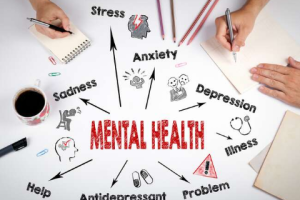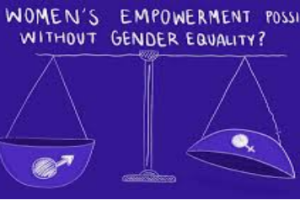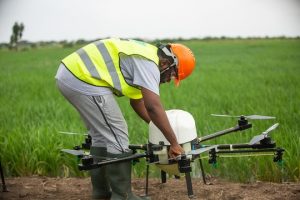
Higher education institutions play a vital role in advancing society, extending far beyond their traditional missions of teaching and research. As centers of knowledge and innovation, universities have a unique responsibility to foster the development of the communities and the societies in which they operate.
One of the key ways universities promote social and community development is through community engagement and outreach programs. By organizing awareness campaigns, workshops, and training sessions, they help address pressing social issues such as poverty, public health, environmental challenges, gender inequality, and illegal migration. These efforts empower individuals and communities by providing the knowledge and tools needed to make informed decisions and improve their quality of life.
In line with this mission, Addis Ababa Science and Technology University (AASTU) continues to fulfill its social responsibility by providing vital community-based services alongside its teaching and research activities. Reflecting this commitment, the university recently organized a workshop aimed at raising awareness among youth about the urgent issue of human trafficking.
Illegal migration has become a serious and growing challenge in Ethiopia, affecting both rural and urban areas. It poses significant risks not only to national development but also to the stability and well-being of families. Tragically, many young migrants set out for destinations that are often less politically stable and economically promising than Ethiopia itself—sometimes paying the ultimate price, including loss of life, along the way.
To address this urgent problem, AASTU brought together young people from major areas like Akaki Kaliti, Gelan, and Koye Feche for an intensive awareness workshop. During the event, experts discussed the legal and criminal frameworks surrounding human trafficking, as well as the underlying push and pull factors driving it. These factors, as explained by the experts, include economic hardship, social pressures, political instability, cultural influences, and the misleading perceptions of better life opportunities abroad.
The workshop also shed light on the role of illegal brokers who lure young people with false promises and deceptive hopes. These brokers’ schemes often result in physical, emotional, and financial harm—and, in the worst cases, death. Experts emphasized that because of these pressures, illegal human trafficking has reached alarming levels across all regions in Ethiopia. Women, in particular, are highly vulnerable due to factors such as economic dependency, divorce, limited educational opportunities, and other social challenges.
A highlight of the event was the testimony of former illegal migrants who had returned to Ethiopia. They shared their harrowing experiences, warning the youth about the dangers they encountered and urging them to seek opportunities within the country rather than risk their lives on dangerous journeys. The speakers also encouraged participants to be vigilant against brokers’ manipulations and to recognize the hidden agendas behind their offers.
President of the University Dereje Engida (PhD), on the occasion stated that although Ethiopia has policies that uphold the rights, respect, and dignity of its citizens, there is a rising trend of illegal migration across different regions and age groups—particularly among the youth, who are a highly productive segment of the population. Therefore, this awareness creation initiative is crucial to combating illegal human trafficking, and it allows AASTU to fulfill its responsibility to educate and empower the community.
The workshop urged stakeholders to develop firm commitment to respond to the urgent call for practical action. Participants were encouraged to share the knowledge they had gained with their peers and communities, helping to raise awareness about the dangers and consequences of illegal migration.
Numerous studies along this line state that governments, international agencies, and nongovernment organizations (NGOs) are struggling to combat human trafficking, though their efforts have not yielded the desired outcomes. In this regard, the government of Ethiopia has taken and continues to take various measures to prevent trafficking and strengthen anti-trafficking law enforcement. For instance, it has organized workshops for national media to raise awareness about trafficking, conducted community conversations, and aired television and radio public service announcements to enhance public awareness, etc. in collaboration with international organizations.
Factors identified as contributors to illegal migration included community attitudes such as having a child abroad being considered a measure of status, and the reluctance to engage in certain types of work that are perceived as low social status at home. There is, however, willingness to engage in similar work abroad, driven by the perception that payments for such jobs at abroad are higher abroad than at home as well as a lack of knowledge regarding differences in working conditions in the two settings are highly attributable to illegal migration.
Amanuel Urgie (PhD), a Legal Advisor working privately underscored that lack of trust in local governance, resources, and opportunities to build one’s future was the main reason why people resort to migration, exposing themselves to the risks of human trafficking. Thus, comprehensive and coordinated efforts involving government agencies, the community at large and other stakeholders are needed to curb human trafficking and its consequences.
Since poor government service provisions, ineffective immigration policies, political instability, the government’s focus on reactive and poorly coordinated control rather than sustainable prevention of human trafficking and corruption are adding fuel to fire. The Ethiopian government should seriously capitalize on these aspects, he added.
As to Amanuel (PhD), corruption is the underlying factor for the poor coordination among government agencies, communities, and individuals. These factors, along with others, have led to the loss of trust and faith in local governance, resources, and opportunities to build one’s future at home, thereby creating a fertile ground for illegal migration, including smuggling and, potentially human trafficking.
Amanuel, who also conducted extensive research on illegal human trafficking, stated that poverty is the major push factor for human trafficking, affecting individuals at all levels, though the degree varies. This is because economic deterioration affects not only individuals, but also relationships, communities, and society at large. As to him, poverty encompasses various dimensions, such as limited access to basic services and insecurity in daily life. In the case of women and girls, poverty can extend to disempowerment, which in turn compels poor parents to sell their daughters into domestic servitude, sexual exploitation for money or goods or forced marriages.
Mentioning that various individual-level factors have been identified that contribute to the heightened vulnerability of women to trafficking and largely stemming from the low value placed on them by their families, communities, and society, Amanuel said that numerous studies have shown that younger individuals, both male and female, are at risk of trafficking.
“The socio-demographic and economic characteristics of individuals, including aspects of young age, female gender, rural residence, and low family income are some of the reasons that contribute to their vulnerability to human trafficking. Additionally, the culture of degrading some types of jobs and according individuals a certain social status based on the type of work they do; coupled with the belief that working abroad yields high financial rewards further increased susceptibility to human trafficking,” he remarked.
The event emphasized the importance of collaborative efforts between higher education institutions and local communities, combining research and awareness initiatives to address this critical national challenge. By addressing the issue of illegal migration head-on, AASTU demonstrates its steadfast commitment to fostering societal development and safeguarding the future of Ethiopia’s youth.
In a nutshell, the effects of the identified reasons and potential factors to human trafficking need to be studied quantitatively to measure the influence of each factor on trafficking and facilitate the prioritization of future interventions.
Obviously, the key factors driving individuals towards illegal migration and exposing them to the risks of human trafficking include the perception in some communities that having a relative abroad is a status symbol, ineffective law enforcement, inadequate punishment against human traffickers, as well as poor coordination and cooperation among government agencies and communities. Such a daunting challenge has to be well addressed and averted by discharging respective responsibilities as demonstrated by Addis Ababa Science and Technology University (AASTU), which is unreservedly working in this area.
BY YARED BEKALU (AASTU)
THE ETHIOPIAN HERALD SATURDAY 10 MAY 2025





